 W
WKamer Daron Acemoğlu is a Turkish-born Armenian-American economist who has taught at the Massachusetts Institute of Technology (MIT) since 1993. He is currently the Elizabeth and James Killian Professor of Economics at MIT. He was named Institute Professor in 2019.
 W
WHalide Edib Adıvar was a Turkish novelist, nationalist, kemalist, teacher and political leader for women's rights of Circassian descent. She was best known for her novels criticizing the low social status of Turkish women and what she saw from her observation as the lack of interest of most women in changing their situation.
 W
WFather Ghevont Alishan was an ordained Armenian Catholic priest, historian and a poet. He was awarded by the Legion of Honour of the French Academy (1866), an honorary member of the Asian Society of Italia, Archeological Society of Moscow, Venice Academy and Archeological Society of Saint-Petersburg.
 W
WAram Andonian was an ethnic Armenian journalist, historian and writer.
 W
WKamil Arli is a prominent Turkish journalist and writer. He has started journalism at Zaman Daily Newspaper and published many articles regarding the Turkish politics. His works also published in Today's Zaman an English daily in Turkey.
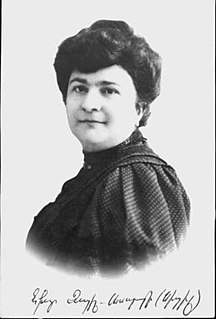 W
WZabel Asadour better known by her literary pseudonym Sibil was born as Zabel Khanjian, July 23, 1863 in Üsküdar district, İstanbul - June 19, 1934), was a famous Ottoman Armenian poet, writer, publisher, educator and philanthropist.
 W
WHüseyin Nihâl Atsız was a prominent Turkish nationalist writer, novelist, poet and philosopher. Nihâl Atsız identified as a racist, Pan-Turkist and Turanist, and was claimed to be a sympathizer of the Nazi government. He was the author of over 30 books and numerous articles. He was in strong opposition to the government of İsmet İnönü, which he criticized for co-operating with the communists. He was accused of plotting to overthrow the government.
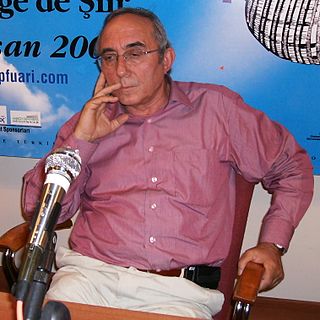 W
WAtaol Behramoğlu is a prominent Turkish poet, author, and Russian-into-Turkish literary translator.
 W
WReteos Berberian, also known as Reteos Perperian, was an Ottoman Armenian educator, pedagogue, principal, writer, poet, and founder of the prestigious Armenian Berberian Varjaran school.
 W
WNshan Beshiktashlian was an Armenian poet, writer, satirist, and novelist.
 W
WMari Beyleryan was an Armenian feminist activist, writer and public figure and a victim of the Armenian Genocide.
 W
WZaven Biberyan was a renowned writer, editor, and author of Armenian descent.
 W
WAydın Boysan was a Turkish architect, academic, author and essayist.
 W
WFaruk Nafiz Çamlıbel was a leading Turkish poet, author and later politician.
 W
WPeride Celal Yönsel, commonly known as Peride Celal or Peride Celâl, was a Turkish novelist and story writer. Her work has won major awards such as the Sedat Simavi Literature Award in 1977, and the Orhan Kemal Novel Prize in 1991.
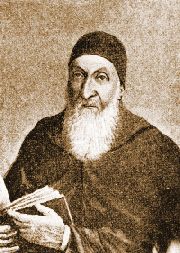 W
WMikayel Chamchian, known also in English as Michael Chamich, was an Armenian Mekhitarist monk and historian. He is best known for writing a comprehensive and influential history of Armenia in three volumes, which has remained a starting point of reference for scholars since the time of its publication.
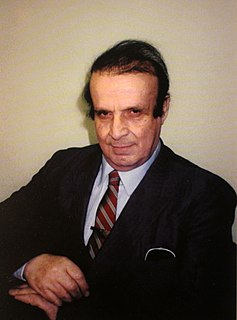 W
WVahakn Norair Dadrian was an Armenian-American sociologist and historian, born in Turkey, professor of sociology, historian, and an expert on the Armenian Genocide. He was one of the early scholars of the academic study of genocide and recognized as one of the key thinkers on the Holocaust and genocide.
 W
WFazıl Hüsnü Dağlarca was one of the most prolific Turkish poets of the Turkish Republic with more than 60 collections of his poems published as of 2007. He was a laureate of the Struga Poetry Evenings Golden Wreath Award.
 W
WSirarpie Der Nersessian was an Armenian art historian, who specialized in Armenian and Byzantine studies. Der Nersessian was a renowned academic and a pioneer in Armenian art history. She taught at several institutions in the United States, including Wellesley College in Massachusetts and as Henri Focillon Professor of Art and Archaeology at Harvard University. She was a senior fellow at Dumbarton Oaks, its deputy director from 1954–55 and 1961–62 and a member of its Board of Scholars. Der Nersessian was also a member of several international institutions such as the British Academy (1975), the Académie des Inscriptions et Belles-Lettres (1978) and the Armenian Academy of Sciences (1966).
 W
WAgop Dilâçar was a Turkish-Armenian linguist who specialized in Turkic languages and the first Secretary General and head specialist of the Turkish Language Association. He was proficient in 22 languages, and in addition to Armenian and Turkish, Dilâçar knew English, Greek, Spanish, Azerbaijani, Latin, German, Russian and Bulgarian.
 W
WSrpouhi Dussap (1840–1901) was an Armenian feminist writer and the first female Armenian novelist. She was the sister of famed Ottoman Armenian politician Hovhannes Vahanian.
 W
WTevfik Fikret was the pseudonym of Mehmed Tevfik, an Ottoman educator and poet, who is considered the founder of the modern school of Turkish poetry.
 W
WMelkon Hrand Guirdjian was a renowned Armenian writer, professor, and civic activist.
 W
WRober Haddeciyan, also known as Rober Haddeler, is an Armenian writer, playwright, and since 1967 editor-in-chief of Marmara, an Armenian-language daily newspaper.
 W
WHovhannes Hintliyan was an Armenian teacher, pedagogue, publisher, and educator. He was the founder of Nor Tbrots, a prestigious Armenian school in the Pangalti district of Constantinople.
 W
WHovhannes Hisarian was an Ottoman Armenian writer, novelist, archeologist, editor, and educator. He was considered the first Armenian romantic novelist.
 W
WAbdi İpekçi was a Turkish journalist, intellectual and an activist for human rights. He was murdered while editor-in-chief of one of the main Turkish daily newspapers Milliyet which then had a centre-left political stance.
 W
WCevat Şakir Kabaağaçlı was a Turkish writer of novels, short-stories and essays, as well as being a keen ethnographer and travelogue.
 W
WRefik Halit Karay was a Turkish educator, writer and journalist.
 W
WAyşe Kulin is a Turkish female short story writer, screenwriter and novelist.
 W
WLevon Larents (Kirisciyan) was an Armenian writer, translator, journalist, editor, novelist, poet, and teacher. He was an editor of many newspapers around the world and the founder of many others. During the Armenian Genocide, Larents was deported to Ankara and then killed.
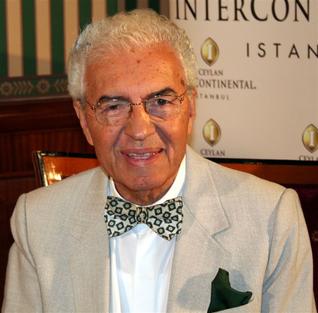 W
WArman Manukyan was a Turkish lecturer, writer, and economist of Armenian descent,.
 W
WRoni Margulies is a Turkish poet, author, translator and political activist resident in London.
 W
WMurathan Mungan is a Turkish author, short story writer, playwright and poet.
 W
WYaşar Nezihe was considered as one of the female poets in the Ottoman Period. She is known as the writer of the first Turkish poem for International Workers' Day on 1 May.
 W
WYervant Odian more known by his satire name "Comrade Panchooni", is considered to be one of the most influential Armenian satirists, along with the roughly contemporary Hagop Baronian. Odian was born into one of the most affluent families in what was then Constantinople. His Paternal Uncle Krikor Odian (1834-1887) was a respected political figure and was even one of the founders and writers of the Armenian National Constitution. His father too was a writer, along with having been a political diplomat and possibly most unique of all, a translator of Victor Hugo's. Odian's mother was indeed wealthy on her side of the family as well. Odian's writings, which include novels and short stories, often humorously point out humanity's vices. Odian's heritage played a major role in some of his major themes, those being Armenian-Turkish relations as well as Muslim-Christian relations. Interestingly enough, Odian's grandfather Yazedje Boghos Agha was from Palu, Turkey, a town notable for its massive Armenian population, a major part of its destruction during the Armenian massacre events of the 1894-1896. He had the unique ability to conceive of and write stories at any given instant. In a 2013 piece written by Eddie Arnavoudian, he proclaimed "Even if elsewhere equalled in modern Armenian literature, Odian's exposure of the establishment's putrid core has certainly not been bettered". Odian's writing styles are often described as extroverted, as if his is removing his persona from the piece in order to best portray the truth. Though Odian was surrounded by nearly all of the other great Armenian writers of his time, and friendly with many of them, their writing styles never altered his own, always staying true to his voice.
 W
WKegham Parseghian, was an Armenian writer, teacher, editor, and journalist.
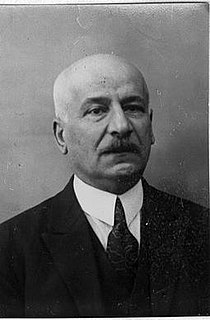 W
WLevon Pashalian, was an Armenian short story writer, journalist, editor, novelist, and politician.
 W
WPeyami Safa was a Turkish journalist, columnist and novelist. He came to the fore in the Turkish literature of the Republican era with his psychological works such as Dokuzuncu Hariciye Koğuşu. He reflected his life and his changes to his works. He wrote many novels under the pseudonym Server Bedi. He created the type Cingöz Recai inspired by Arsène Lupin of the French writer Maurice Leblanc. He also worked as a journalist at various institutions and published several magazines such as Kültür Haftası with his brother İlhami Safa.
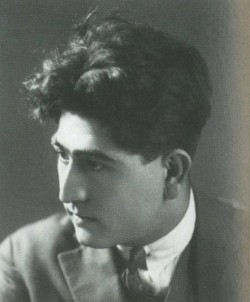 W
WNigoghos Sarafian, was an Armenian writer, poet, editor, and journalist.
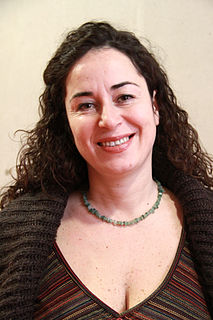 W
WPınar Selek is a Turkish sociologist, feminist, and author. She is known for her work on the rights of vulnerable communities in Turkey, including women, the poor, street children, sexual minorities, and Kurdish communities. She is the author of several books published in Turkish, German, and French, and is one of the founding editors of Amargi, a Turkish feminist journal. She currently resides in France and became a French citizen in 2017.
 W
WAli Serim, is a Turkish socialite. He is known as a strategist, corporate advisor, entrepreneur, writer and heritage activist.
 W
WHovhannes Setian, was an Armenian short story writer, poet, and teacher.
 W
WParsegh Shahbaz was an Ottoman Armenian lawyer, political activist, journalist, and columnist. He was a member of the Armenian Revolutionary Federation. During the Armenian Genocide, Shahbaz was deported to Çankırı and then Harput where he was killed.
 W
WShahan Shahnour, in Armenian Շահան Շահնուր, French transliteration Chahan Chahnour), who signed his French language writings as Armen Lubin was a French-Armenian writer and poet. He is considered a renowned Diasporan author in the Western Armenian tradition with his own style of writing.
 W
WSolmaz Sharif is an Iranian-American poet. Her debut poetry collection, Look, was a finalist for the 2016 National Book Award. She currently lives in Oakland, California, and is a Jones Lecturer at Stanford University.
 W
WGülruz Sururi was a Turkish drama actress and author. She presented a TV cooking show and co-owned a theatre.
 W
WArshaguhi Teotig was an Armenian social worker, educator, publicist, writer, and translator.
 W
WTovmas Terzian was an Armenian poet, playwright, and professor.
 W
WZeynep Tufekci is a sociologist and writer. Her work focuses on the social implications of new technologies, such as artificial intelligence and big data, as well as societal challenges such as the pandemic using complex and systems-based thinking. She has been described as “having a habit on being right on the big things” by The New York Times and as one of the most prominent academic voices on social media by The Chronicle of Higher Education. She is currently a writer for the Times and The Atlantic and has written regular columns for Wired and the Scientific American in the past, as well as contributing to a variety of outlets including The New Yorker, The Washington Post, USA Today, Financial Times and others. She is currently an associate professor at the School of Information and Library Science at the University of North Carolina and a faculty associate at the Berkman Klein Center for Internet and Society at Harvard University.
 W
WHalid Ziya Uşaklıgil was a Turkish author, poet, and playwright. A part of the Edebiyat-ı Cedide movement of the late Ottoman Empire, he was the founder of and contributor to many literary movements and institutions, including his flagship Servet-i Fünun journal. He was a strong critic of the Sultan Abdul Hamid II, which led to the censorship of much of his work by the Ottoman government. His many novels, plays, short stories, and essays include his 1899 romance novel Aşk-ı Memnu, which has been adapted into an internationally successful television series of the same name.
 W
WZareh Yaldizciyan, better known by his pen name Zahrad, was a poet who lived in Turkey and wrote poems in the Western Armenian language.
 W
WKrikor Zohrab was an influential Armenian writer, politician, and lawyer from Constantinople. At the onset of the Armenian Genocide he was arrested by the Turkish government and sent to appear before a military court in Diyarbakır. En route, at a locality called Karaköprü or Şeytanderesi on the outskirts of Urfa, he was murdered by a band of known brigands under the leadership of Çerkez Ahmet, Halil and Nazım some time between 15 July and 20 July 1915